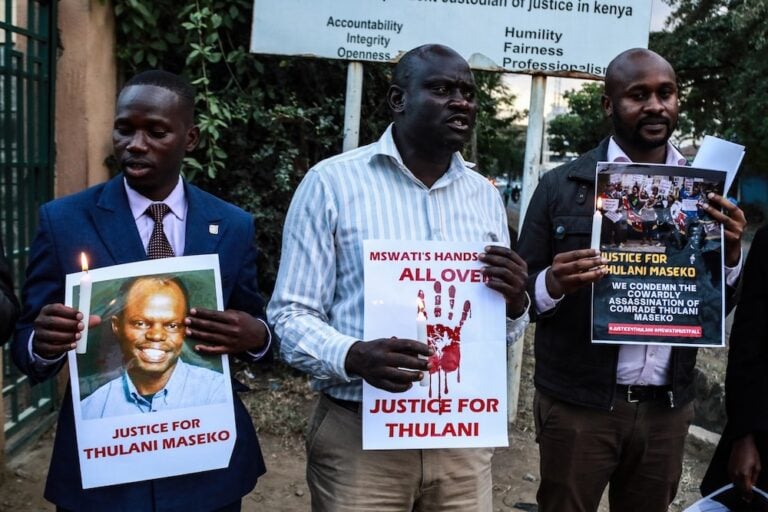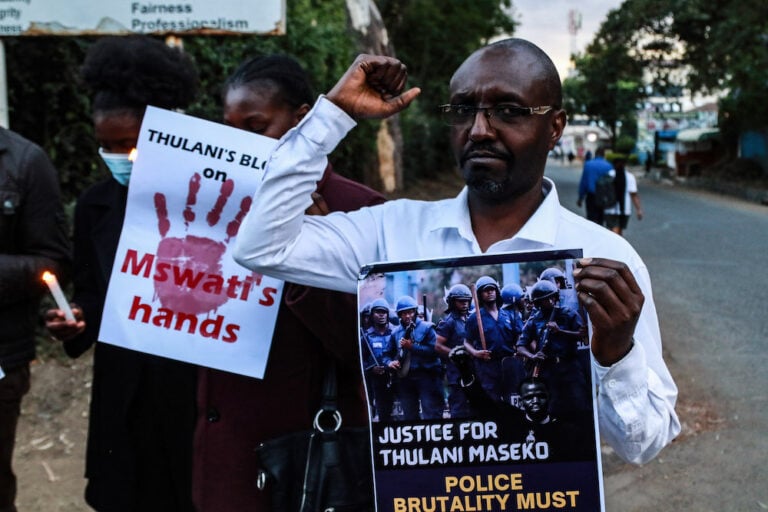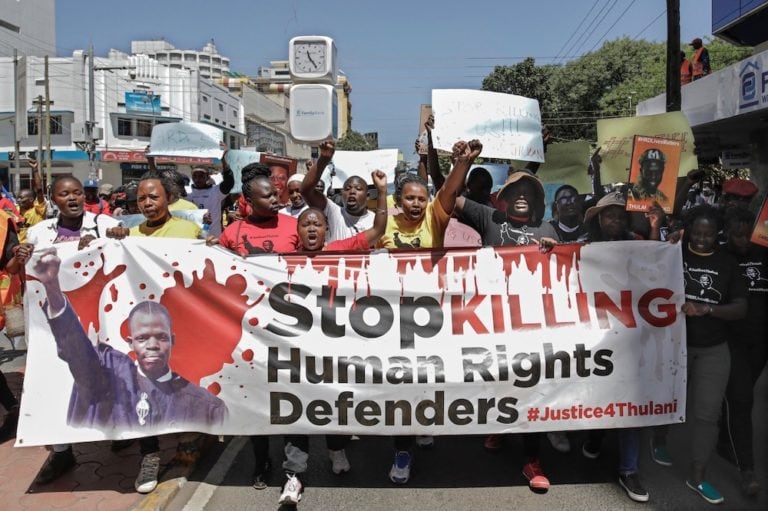(MISA/IFEX) – At least two journalists were threatened and forced to leave their posts on 28 October 1999 following an apparent illegal strike by workers at the Swaziland Television Broadcasting Corporation (STBC). Since then, six workers at STBC have also been suspended without pay from the corporation, apparently because of their involvement in the strike. […]
(MISA/IFEX) – At least two journalists were threatened and forced to leave
their posts on 28 October 1999 following an apparent illegal strike by
workers at the Swaziland Television Broadcasting Corporation (STBC). Since
then, six workers at STBC have also been suspended without pay from the
corporation, apparently because of their involvement in the strike. MISA
sources said the six suspended workers were regarded as being directly
responsible for the news blackout and seizure of the studios.
According to reports received by MISA, the striking workers stormed the
television studios, locked all the doors and took control of the station.
Freelance news presenter Emanuel Cele, who was not part of the strike, was
ordered to leave the studio under threat of being harmed. Another worker,
who was bringing news inserts from a private TV studio, was also told to
leave the station with those inserts. As a result of the action, no news was
broadcast on 28 October, but most other programmes were kept on air.
The strike was wage related, with workers demanding seven per cent back pay,
which management had promised in April. Initially, management said they
would receive this back pay with their November salaries, but the Swaziland
Media and Publishers Workers Union (SMEPAWU) decided nevertheless to go
ahead with the strike action. The strike was abandoned on the morning of 29
October, when it became clear that the action was illegal and that jobs were
under threat as a consequence. Some seventy-five per cent of workers at the
STBC joined the strike action on 28 October.
The six suspended workers who will appear before a disciplinary board on 23
November are: Lwazi Hlope, technician and president of SMEPAWU; Bheki
Thwala, technician; Fanlakhe Sikhondze, technician; Sam Lukhele, journalist;
Mvumeni Khumalo, sound engineer; and Bhitani Dlamini, camera operator.


